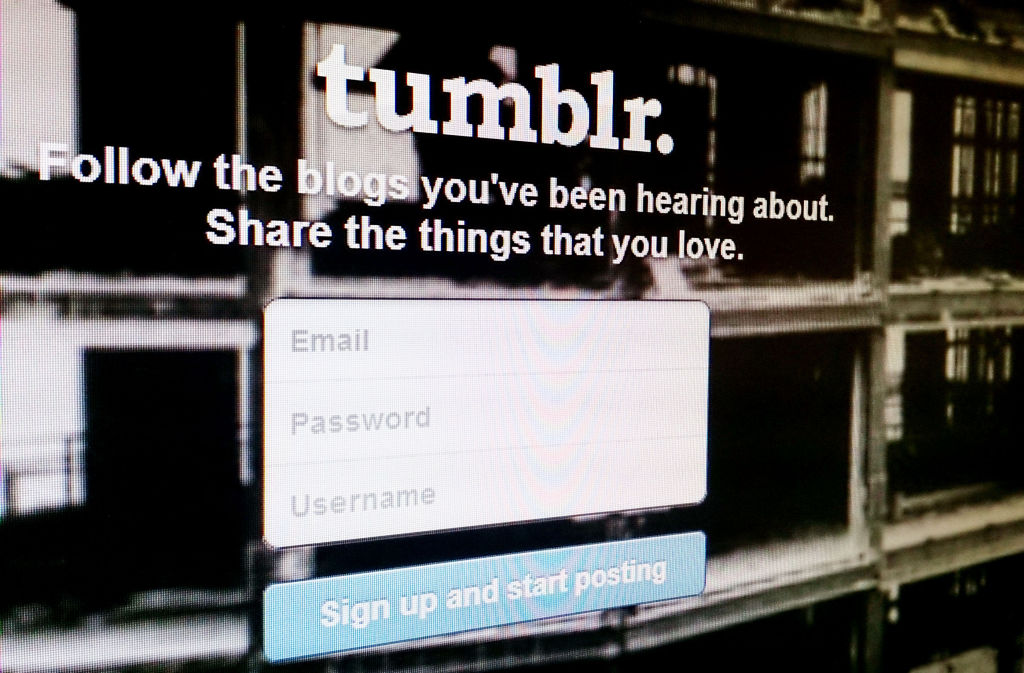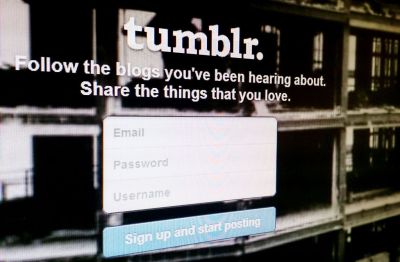Welcome back to Techne!
I’ve become slightly obsessed with the culture of Mound Builders. Last Friday, I walked around Cahokia Mounds and scaled the largest mound, Monks Mound, with my friend Dr. William Aungst. Located across the Mississippi River from St. Louis (and pictured below), Monks Mound at its base is about the size of the Great Pyramid of Giza. At its peak, there were about 30,000 people in the Cahokia region. It was also home to a thriving copper smelting industry and trade routes that extended into the Gulf of Mexico. But in a mystery that still stumps archaeologists, the region was completely abandoned by 1350 A.D.

Notes and Quotes
- Sens. Mark Warner and Marco Rubio introduced legislation aimed at securing the critical minerals supply chain, boosting manufacturing, and countering China's sector dominance.
- The people have spoken: Volkswagen cars are getting an interior makeover after customers complained about the “frustrating” touchscreen controls. Though the brand isn’t entirely scrapping touchscreens, it is incorporating switches back into the center stack.
- It took only two days—and by the Washington Post’s reporting, perhaps as little as 40 minutes of labor—for the FBI to successfully break into one of the phones of the 20-year-old shooter who tried to assassinate former President Donald Trump.
- AT&T revealed that hackers stole six months of call and text records of nearly all its customers. While the content of communications wasn’t leaked, the stolen metadata included phone numbers. Such large-scale metadata can reveal highly sensitive information when analyzed.
- The study of aerodynamics has been undergoing an upsurge of innovation, as seen, for example, by this helpful thread from Jordan Taylor on X. In addition to some new wing designs and propulsion systems being tested, the X-59 Quesst or Quiet SuperSonic Technology is set to fly later this year. This experiment supersonic jet will test a suite of technologies meant to reduce the sound of sonic booms, thus paving the way for commercial supersonic flights.
- New York City was set to be the first city in the U.S. with congestion pricing of Lower Manhattan. Just before the pricing scheme was set to go into effect, Gov. Kathy Hochul scrapped the plan, which took 17 years and $700 million to develop. Jimmy Vielkind and Joseph De Avila’s report in the Wall Street Journal chronicles all of the work that went into the project, only for it to be dashed by the governor.
- A spade-toothed whale washed up on a beach in New Zealand. Scientists hope that the discovery of the rare, beaked whale species might provide unprecedented insights into their diet and habitat.
- According to a clinical trial in South Africa and Uganda, a new drug provided women with 100 percent protection from HIV infection. This breakthrough offers hope for combating new infections, which totaled 1.3 million last year.
- Proposals to protect vulnerable glaciers through physical interventions like building barriers or drilling into ice sheets have sparked debate among scientists. Some glaciologists oppose these ideas, viewing them as costly, flawed, and distracting from the more effective solution of reducing greenhouse gas emissions. I’m bullish on geoengineering.
- Florida’s high-speed rail line reported a loss of $116 million in the first quarter of 2024. Despite a revenue surge between January and March, the rail’s operating expenses more than doubled because of costs associated with long-distance service between South Florida and Orlando.
The Power of Tumblr

The social networking website Tumblr is a shadow of its former self now, but from about 2010 to 2016 something new was arising in it. It was generally referred to as remix culture at the time, but today, it’s clear that the site helped germinate something more specific and central to a lot of debates: woke culture.
I say this as a former Tumblr user. In its heyday, to be on Tumblr was about melding various cultural elements into coherence. Fashion, architecture, movie clips, art, and music would appear next to a post about gender, income inequality, sexual identity, and racism in America. Comment threads would go deep and followers would often follow the tree, spending hours understanding the context of the conversation. Tumblr helped bring about a completely new mode of conversation that flattened valence and politicized every utterance.
In the indispensable Kill All Normies, a book chronicling internet subcultures, Angela Nagle gave special focus to the site, noting that, “Tumblr was one of the most important platforms for the emergence of a whole political and aesthetic sensibility, developing its own vocabulary and style.” The resulting seven years since its publication has only vindicated Nagle’s relatively dry observation that “These dynamics, which began in subcultural obscurity online, later spilled over into the campus wars over free speech, trigger warnings, the Western canon and safe spaces.”
So you’ve got to wonder: Did this new, very online phase of the culture wars start on Tumblr?
Tumblr’s rise.
The internet age has skewed our sense of proportion. Tumblr wasn’t as obscure as Nagle seemed to suggest. In 2011, it had 13.4 million active visitors, about half of whom were under the age of 25 and located mostly in the U.S. At the time, the under-25 population hovered around 100 million, so this group might have made up around 5 percent or so of the population.
Founded in 2007 by David Karp, Tumblr had few of the limits that other sites did. Unlike Twitter, which limited posts to 148 characters, Tumblr users could upload video clips or gifs, chat with other users, follow blogs, and, importantly, repost content as long as it was under 500,000 characters. And unlike Facebook, which had a real name policy, Tumblr users could stay anonymous or they could divulge as much as they wanted. Tumblr offered flexibility and anonymity.
Famously lax content moderation allowed for NSFW content to proliferate, which grew alongside fandoms and niche communities. At the time, Tumblr was known for being a haven for teenage girls, which, combined with the lack of oversight, helped self-harm and pro-anorexia circles flourish. The darker elements of the site gave it an edge. Meme culture flourished.
But Old Tumblr also had limited filtering options, which meant that users were exposed to a range of topics. The effect was that niche communities and fandoms freely intermingled with identity politics. Katherine Dee, one of the best chroniclers of internet culture today, interviewed approximately 100 former Tumblr users and found, “Most people I spoke to shared that the first time they were exposed to anything related to identity politics (especially queer identity or feminism) was on Tumblr, and almost always within the context of fandom, e.g. representation in a favorite fan property.”
The experience seems to be widespread. Writing in Pacific Standard, Emma Sarappodec found that for many wealthy white people, Tumblr would have been their first experience with conversations about race and privilege. Trace Pfaff, a white, gay man from Tennessee, told Sarappodec that, “Prior to Tumblr, I was a Republican a—hole.” In their text exchange, Pfaff explained that those posts, sandwiched between jokes, became instrumental to his political development as a teenager. “So I join Tumblr primarily because of the memes, but I notice that all the meme accounts would also frequently reblog some very new liberal ideas that I had never considered before,” he reflected.
Sarappodec also interviewed Emma DuFort, who grew up in Michigan, in what she describes as a “highly privileged, sheltered environment.” Again, Tumblr introduced her to new ideas of race and class. “I mean, it sounds like such a joke to say ‘Tumblr radicalized me,’ but it's become less of a joke as the years go on.”
During its peak, however, there was really only one major article written about Tumblr. Valeriya Safronova’s “Millennials and the Age of Tumblr Activism” appeared in the New York Times in late 2014. As she reported, “The cyber social-justice movement is always brewing on Tumblr, and it picks up steam when shocking news hits the country or when protests take place offline.”
What’s interesting about this report is that it documented the prevailing wisdom of the time:
“Tumblr is kind of like a gateway drug for activism,” said Philip Howard, 44, the principal investigator at the Digital Activism Research Project at the University of Washington. “Once you connect to other people who feel strongly about race or crime or gay marriage, you stay engaged on that one issue area.”
Before my work in policy, and right out of college, I spent two years at the University of Illinois at Chicago, studying rhetoric and what was then called new media. Back then, there was a sense of optimism surrounding these sites, especially following the Arab Spring where social networks seemed to power political action. But what was little appreciated then—and now for that matter—is that Tumblr helped to grow a politics rooted in intersectionality, where politics came to frame everyday decisions. Now a tweet, or post on Facebook, an Amazon order, or a right swipe on a dating app carries with it a political statement. Tumblr was a trial run.
What does seem prescient, however, is when the Times reported:
“You can create your own identity via Tumblr,” said Moya Bailey, 31, a postdoctoral fellow at Northeastern University in women’s studies and digital humanities. “I see many more diverse images on Tumblr than I see anywhere else. It’s one of the few places where I see fat people, trans women and trans women of color who are celebrated.”
So it shouldn’t be surprising to see how the company was self-identifying in 2016: "We have a very woke crowd on Tumblr," Victoria McCullough, social impact and public policy manager at the platform told Mashable.
The 2018 NSFW ban changed all of that.
The Exodus.
In 2017, Verizon bought Yahoo!, and as a result, Tumblr changed hands. Then, at the end of 2018, Tumblr announced stricter content moderation standards, which got rid of NSFW material. This post from the advocacy group, the Electronic Frontier Foundation (EFF), offers more context for this shift.
Regardless, people revolted and left the site because of its new content moderation policies, radically remaking Tumblr’s user base. From October 2018 through April 2019, the number of consistent users dropped by about a third, from 558 million to 376 million monthly visits globally. Back in 2013, Yahoo! paid $1.1 billion for Tumblr. By the end of 2019, it was worth just $3 million.
The exodus away from Tumblr had varying impacts on platforms like Reddit, Twitter, and others. We’ll have to explore those changes in a future post, as well the aesthetics of a Tumblr post, which was often nostalgic of the 1990s, a now dominant trend in fashion and art. For now, let’s just keep in mind what Old Tumblr helped to facilitate: an online world where the posting and comment structures made it possible to read everything politically. Tumblr may not have been the prime mover of this new trend, but it was certainly a key part of it. It was at the vanguard of the culture war we’re living in now.
In a previous age, a plaque of a bald eagle with outstretched wings signaled that the house was paid off. Today, homes are decorated with what is effectively a Tumblr image repost: “In this house, we believe…”
Until next week,
🚀 Will
AI Roundup
- Arati Prabhakar, director of the White House Office of Science and Technology Policy, spoke about her approach to AI safety in an episode of The Vergecast. Regarding regulation, she says, “I think it’s really important to be clear about the specific applications, the risks, the potential, and then take actions now on things that are problems now and then lay the ground so that we can avoid problems to the greatest degree possible going forward.”
- Can ChatGPT do data science? Austin Henley, a professor of computer science at Carnegie Mellon University, explores.
- AI data centers consume vast amounts of copper. Recently, KoBold, a mining company, discovered a copper deposit in Zambia expected to yield 300,000 tons annually.
- An AI protein language model called ESM3, comprised of nearly 100 billion parameters, has created new fluorescent proteins by synthesizing and studying existing fluorescent molecules.
- Charlie Warzel expresses skepticism about claims coming from Sam Altman and Arianna Huffington that generative AI can help millions of suffering people: “The bulk of the conversation about AI’s greatest capabilities is premised on a vision of a theoretical future. It is a sales pitch, one in which the problems of today are brushed aside or softened as issues of now, which surely, leaders in the field insist, will be solved as the technology gets better. What we see today is merely a shadow of what is coming. We just have to trust them.”
- A new report finds that 37 percent of Americans are “AI optimists” and 27 percent of Americans are “AI ignorant.”
- A neuroscience study found that the majority (67 percent) of participants attributed some possibility of consciousness to large language models. These findings were positively related to frequent use of LLMs.






Please note that we at The Dispatch hold ourselves, our work, and our commenters to a higher standard than other places on the internet. We welcome comments that foster genuine debate or discussion—including comments critical of us or our work—but responses that include ad hominem attacks on fellow Dispatch members or are intended to stoke fear and anger may be moderated.
With your membership, you only have the ability to comment on The Morning Dispatch articles. Consider upgrading to join the conversation everywhere.